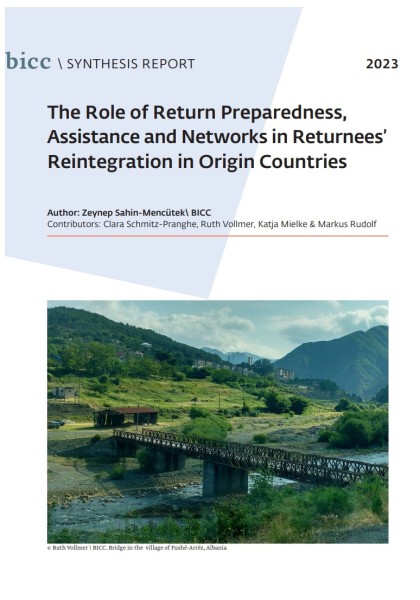The Role of Return Preparedness, Assistance and Networks in Returnees’ Reintegration in Origin Countries (Synthesis Report)

Across the destination countries of migration, i.e. migrant-receiving countries, in Europe there has been an increasing emphasis on return and reintegration programmes. These programmes particularly target rejected asylum-seekers forced to return, irregular migrants unable to legalise their stay in the migration country and migrants wishing to return of their own volition. Reintegration commonly refers to the processes that unfold
after the return of migrants, refugees and internally displaced persons to their country of origin or place of residence as they set about trying to re-establish their lives. However, the reintegration trajectories of assisted and non-assisted returning migrants in different contexts have scarcely been researched. Funded by the German Federal Ministry for Economic Cooperation and Development (BMZ) under a Special Initiative on “Tackling the root causes of displacement and (re-)integrating refugees”, BICC has undertaken over the past four years (2019-2022) a qualitative research project entitled “Trajectories of reintegration” designed to tackle this desideratum.
This Synthesis Report brings together selected findings of the project’s empirical studies in the Western Balkans (Serbia, Albania, Bosnia and Herzegovina, Kosovo), West Africa (Ghana, Senegal, the Gambia) and the Middle East (Iraq).
